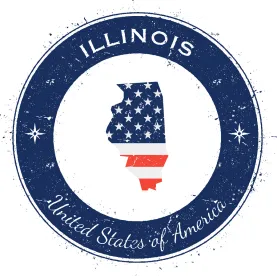In two recent General Information Letters (GILs), the Illinois Department of Revenue (Department) reaffirmed that computer software provided through a cloud-based delivery system is not subject to tax in Illinois. The Department announced that while it continues to review cloud-based arrangements and may determine they are taxable at some point, any decision to tax cloud-based services will be applied prospectively only. The GILs also recognize Quill’s physical presence requirement for Commerce Clause nexus.
In ST 17-0006-GIL (03-02-2017), the Department responded to a request for ruling by a business that operated a modernized voice-automated call center hosting located in Illinois. The call center provided a number of services to its customers, using telephone channels and cloud-based technology to direct incoming calls, send outbound calls, accept account payments, process orders and update customer accounts. In its request for ruling, the business asked whether its activities would create nexus in Illinois for its out-of-state customers under three scenarios: (1) if it engaged in activities specifically protected by 86 Ill. Admin. 100.9720 (such as allowing a customer to track or update the status of an order or pass inquiries and complaints to its home office); (2) if it routed calls to a technical service agent located outside of Illinois; and (3) if it accepted payment on the collection of a delinquent account.
In its response, the Department did not specifically answer the businesses’ questions, but it did provide a detailed overview of the applicable Illinois statutory scheme. The Department stated that while a provider of software as a service (SaaS) is acting as a serviceman and does not incur Retailers’ Occupation Tax, its sales potentially are subject to Service Occupation Tax (SOT), which “is imposed upon all persons engaged in the business of making sales of service on all tangible personal property transferred incident to a sale of service, including computer software. . .” Id. However, if the software is not transferred or downloaded, it is not subject to SOT. According to the Department, “computer software provided through a cloud-based delivery system – a system in which computer software is never downloaded onto a client’s computer and is only accessed remotely – is not subject to tax.” Id.
Importantly, the Department cautioned that where the provision of a device is required to enable a subscriber to access the provider’s network, the subscription fee could be taxable. The GIL states:
If a provider of a service provides to the subscriber an API, applet, desktop agent, or a remit access agent to enable the subscriber to access the provider’s network and services, the subscriber may be receiving computer software. Although there may not be a separate charge to the subscriber for the computer software, it is nonetheless subject to tax, unless the transfer qualifies as a nontaxable license of computer software.
ST 17-0006-GIL at p. 5.
In ST 17-0010-GIL (03-21-2017), an out-of-state business with no offices or employees in Illinois inquired about its obligation to remit tax on its sales of software access to car dealerships and car mechanics, which enabled them to create and send videos to their customers explaining car problems and the needed repairs. The businesses’ customers paid a monthly fee to access the software. Although the business also sold a device to record the video, the device was billed separately, and it was not required to access the software. Rather, the software could be downloaded and accessed from any internet connection.
In its response to the businesses’ inquiry, the Department reaffirmed its position that software provided through a cloud-based delivery system that is not transferred or downloaded is not subject to SOT. The Department also repeated its statement that the provision of a device required to access a computer service would make the subscription fee for the service subject to SOT.
Both rulings also reflect the Department’s continued recognition of Quill’s physical presence requirement for Commerce Clause nexus, although the Department was careful to note that physical presence can be established in a number of ways, including by the actions of an agent or by a retailer’s “repetitive” delivery and installation of its products in Illinois.




 />i
/>i
